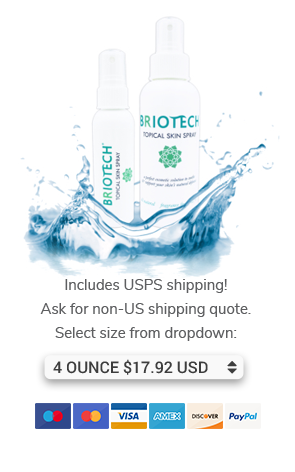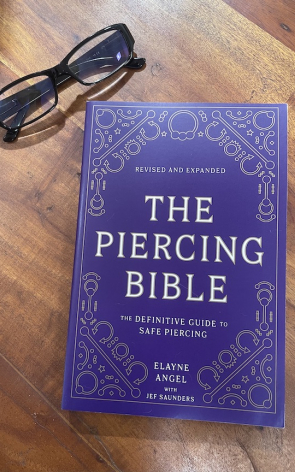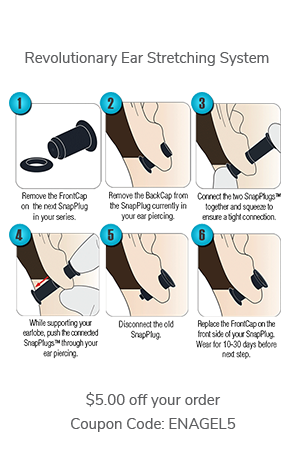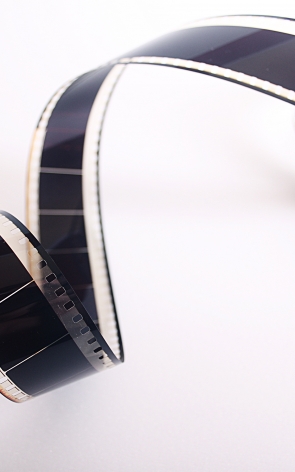I received this message via email:
Hi Elayne,
I am having a situation with a piercing I did. Sunday afternoon I did an industrial piercing on a girl named Alex. I'm still an apprentice but this was the 10th industrial piercing I've done and I have never had a problem with any of them up until now.Alex called me this afternoon, 2 days later, complaining that her piercing is bleeding and she can't get it to stop. It hardly bled when I pierced it, and up until last night when the bleeding started, she said that it was healing just fine. It wasn't sore, red, no signs of infection, and didn't hurt at all. First thing I did was try to figure out how the bleeding started. She said she took 500mg of ibuprofen and the bleeding started shortly after that. I understand that a side effect of ibuprofen is blood thinning but unless she was already bleeding I didn't think the ibuprofen would cause her to start. I just thought it would make it a bit harder to get the bleeding to stop if she did happen to start bleeding. Am I wrong about this?
She also said she thinks she accidentally rolled over onto it in her sleep which would make more sense except that it started bleeding before she went to bed. Is it possible she is just not telling me that she bumped it or something, or is it normal for industrial piercings to randomly start bleeding days later?
Regardless, she can't get the bleeding to stop and with her schedule has no time to come to the shop for me to look at it in person, so I'm trying to help her the best I can over the phone but nothing seems to be working. She gets it to temporarily clot but hours later it just starts bleeding again. It's not gushing or anything. The way she described it was like when you accidentally poke your finger with a sewing needle, how it will bleed and drip blood a little bit but not excessively.
She also said it doesn't hurt at all, there is no heat radiating from the piercing or any other signs of infection, that it's just bleeding. I talked to the piercer I am apprenticing about the situation and followed all of his advice. I've had her do warm compresses, sea salt soaks, apply slight pressure, ice... the problem is still persisting. I know you probably won't get this e-mail in time to help me with Alex's situation, but any advice you can give me would be so greatly appreciated in case something like this happens again in the future.
-- Brittany
My response:
Brittany,
When there is bleeding present, NO warm compresses or salt water soaks should be administered--they will prevent normal clotting from taking place. So that could be a big part of the problem. Those should only be done after bleeding has stopped.
Any piercing can bleed off and on--even if it doesn't bleed at first. It could be caused by trauma (even mild--like rolling over in bed onto the piercing) or by medication that thins the blood, or a combination of the two.
Here's a brief section from my book, The Piercing Bible--The Definitive Guide to Safe Body Piercing that talks about what to expect from a new piercing:
What to Expect
Immediately after being pierced, some bleeding, swelling, and tenderness or pain are standard consequences. Bleeding may continue—usually intermittently—for a few days. Localized bruising is normal, though not typical for most piercings. Heavy blood flow or bleeding that continues for longer than a few days may be cause for concern, and you should contact your piercer or a physician. The placements that routinely bleed freely are discussed in chapters 10–13.
If a piercing bleeds or swells substantially right after the piercing, an ice pack should be applied as soon as possible. Prepared piercers keep disposable instant cold packs ready for use. They can be wrapped in a clean dental bib or paper towel to maintain hygiene. Occasionally, a piercing will swell so much that your piercer needs to swap out your jewelry for a larger piece before you leave the studio. An adept technician will use an insertion taper to change it for you without causing pain or trauma to the area. Internally threaded jewelry is safer and easier to deal with in these situations.
Piercings that bleed under the surface can leave a colorful bruise. Arnica montana (a natural herb) may help to diminish the discoloration. Arnica is available in cream or gel form at health food stores. Apply it on the bruise, but do not put it directly into the wound.4
On occasion, some localized swelling of a fresh piercing can impinge upon a nerve, causing temporary numbness or tingling, loss of taste in oral piercings, or diminished hearing in ear piercings (rare). However, barring an unusual placement or healing complications, these are transient troubles.
You can expect slight swelling, redness, and oozing of fluid to persist for a prolonged period of time. You might not have bleeding or tenderness immediately afterward, but a few weeks or months later it might happen. This is normal, and in the absence of other problems, there is no cause for concern. Any time a piercing has a flare-up, treat it as if it were new by resuming or accelerating your aftercare regimen.
Sincerely,
Elayne
Elayne Angel, Author
The Piercing Bible--The Definitive Guide to Safe Body Piercing
Business Member at Large, Association of Professional Piercers
https://piercingbible.com/
http://www.facebook.com/elayneangel
http://twitter.com/elayneangel
http://www.linkedin.com/in/authorelayneangel




